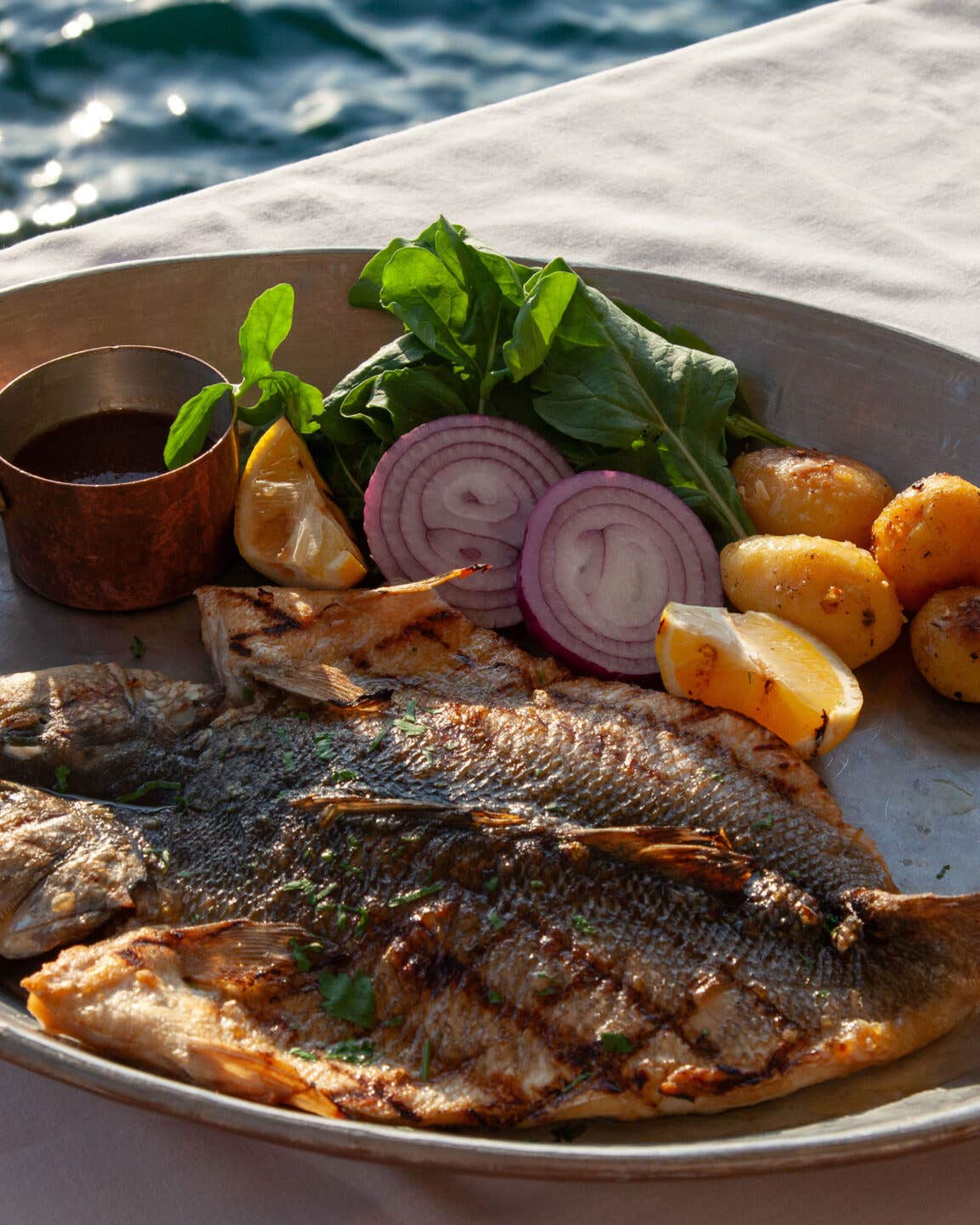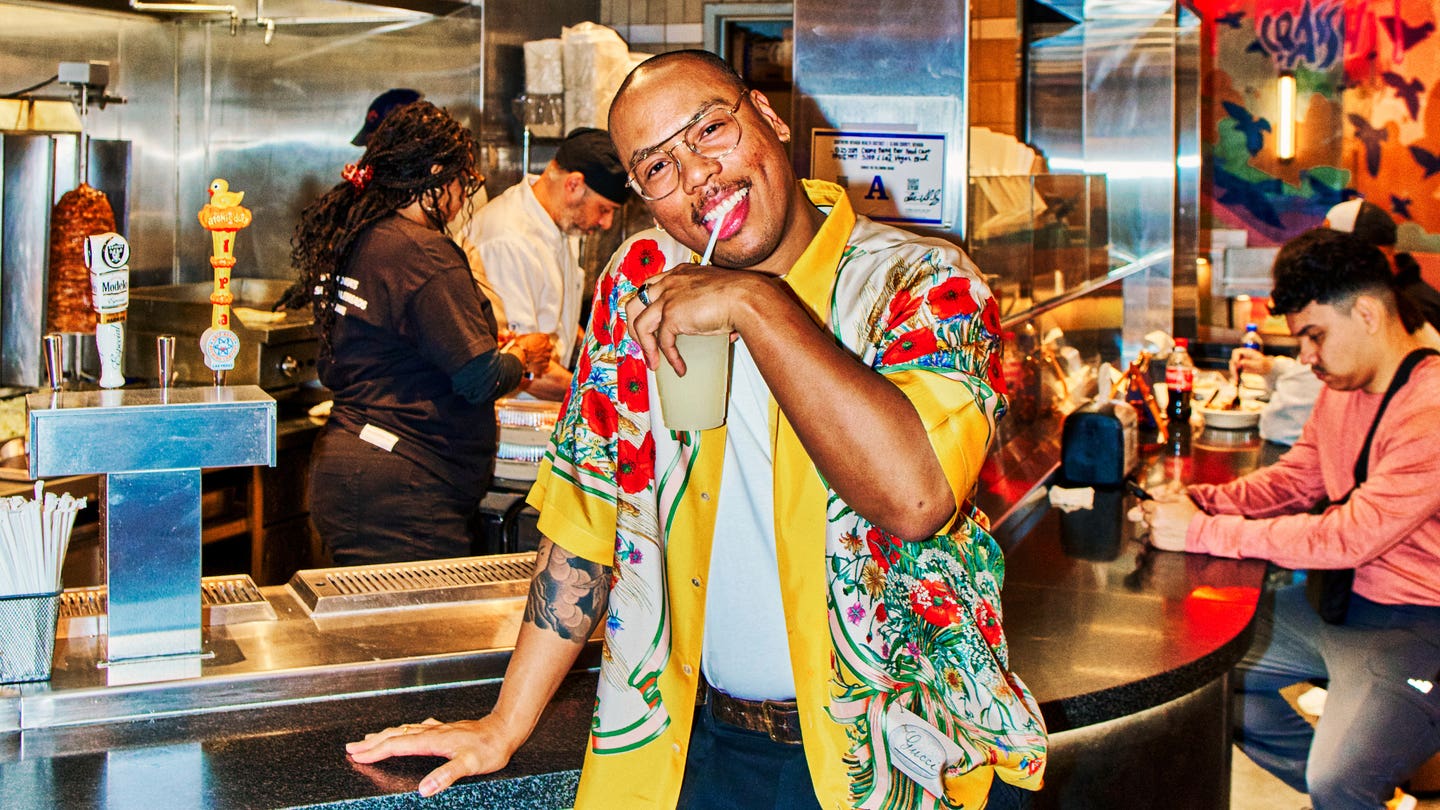
Familiar Flavors Offer Refugees a Taste of Home in Northwest Arkansas
This organization welcomes new arrivals with a warm meal (and a well-stocked kitchen).
Food is more than what’s on the plate. This is Equal Portions, a series by editor-at-large Shane Mitchell, investigating bigger issues and activism in the food world, and how a few good eggs are working to make it better for everyone.
“Our African families require a different kind of pot than our Syrian or Afghan families,” says Nellie Beall, Director of Finance and Grants for Canopy NWA, a non-profit refugee resettlement agency based in Fayetteville, Arkansas. “They would actually like pressure cookers to make pulao, while the Congolese want a certain pot to cook ugali.” The desired pots are included in welcome kits assembled for newly arrived families from around the world. Whisks, spatulas, potholders, frying pans, casserole dishes, knives, and can openers are among the other essentials Canopy supporters have donated to help them build their kitchens from scratch. Then the refrigerator and kitchen shelves are filled with enough groceries for three days. These used to include American staples like cream cheese, but Canopy over time has adjusted the shopping lists to include ingredients from the refugees’ countries of origin. “Even five to eight years ago, we had to go to a specialty store to find things like cardamom and black mustard seeds,” says Beall, who moved to Arkansas from Kuala Lumpur in 2001. “The local grocers have come a long way.”
And then, there’s the first hot meal in their new country. Canopy sponsor teams (typically six to eight volunteers) provide a welcoming dinner for the refugees they “walk alongside” while adjusting to life in Arkansas. (This involves a mentoring commitment of six months, part of the agency’s greater “Long Welcome” community integration program.) Leah Harvey, a physical therapist and mother of two young boys, organized a taste of home for several Afghan families, who were greeted in Bentonville with Kabuli pulao, Afghanistan’s national dish. “They said it was delicious, but a little dry,” Harvey recalls. “So we still have work to do.”

Last October, a Presidential Determination authorized the admission of 125,000 refugees into the U.S. during fiscal year 2022, exponentially increasing the previous administration’s limit of 15,000. The State Department’s Bureau of Population, Refugees and Migration, which coordinates humanitarian policies, defines a refugee as someone who has “experienced past persecution or has a well-founded fear of persecution on account of race, religion, nationality, membership in a particular social group, or political opinion.” These newcomers include displaced people from conflict zones and unstable regions in Africa, Southeast Asia, Central America, and the Middle East. More recently, Afghan special visa (SIV) holders have been granted humanitarian parole for resettlement as well. Non-profit agencies and church groups then coordinate with the Department of Health & Human Services to place refugee and asylum seekers in safe, welcoming communities.
Canopy’s mission is modest compared to many similar organizations that have had longer tenures. The agency has assisted 380 people since filing for non-profit status in 2016. In comparison, close to 17,000 people from more than 40 countries have arrived in upstate New York via The Center over the past 42 years. (It was recently the focus of the documentary film Utica: The Last Refuge.) However, what Canopy lacks in scale, it makes up for in neighborly goodwill. This means teaching inexperienced newcomers to navigate life—such as how to checkout groceries at a superstore and obtain a driver’s license for the first time.
Beall knows from firsthand experience how challenging this culture shock can be. “One of the big things that we ask our sponsor teams to do is to help with Walmart,” she says. “I know that 20 years later, even for me, the cereal aisle is visually over-stimulating. I joke about that in training sessions, but it can be overwhelming to have so many options for just one item.”
This applies to condiments and sodas as well. “There's only one Mountain Dew back home,” says Ahmad Ghani Ghani, Canopy’s Employment Specialist Aide. “Afghans are not used to different kinds of flavored milk or yogurt. I just tell others to buy basic ketchup, salt, juice.” Originally from Afghanistan’s Paktia Province, Ghani Ghani came to study in the States through the Fulbright Program in 2016, then earned a master's degree in petroleum engineering from Missouri S&T before returning home to work for his government. He received an F1 student visa two days before the fall of Kabul. In a harrowing escape, Ghani Ghani spent a week hiding from the Taliban until, one evening, he packed his documents, some cash, and a few clothing items, then made a risky dash to the airport. He was evacuated as a humanitarian parolee to Doña Ana Range Camp in New Mexico, where he spent two months waiting for placement. Ghani Ghani chose to resettle in Northwest Arkansas because the geography was similar to the familiar “Show Me State" right next door. His immediate family remains behind in Afghanistan.
When he arrived in Fayetteville, Ghani Ghani invited Beall to dinner at his apartment with other friends and colleagues. She says the meal, a global potluck, made her homesick for Malaysia. “Our national dish is nasi lemak, but I also grew up with biryani and pulao. So when Ghani had his housewarming party, it was like going back to my mom's kitchen. Being married into a very Southern white family, I always get served mashed potatoes with gravy, and while I enjoy the pot roast and stuff, my palate always returns to rice-based dishes.”
Beall also confirms that the region’s farmers are catering to increased demand for ingredients like water spinach, bitter melon, bok choy, fragrant rice, and chiles. Some producers are immigrants or former refugees themselves, including a growing community of Hmong Americans who dreamed of owning farmland. After all, establishing relationships with growers at weekly markets is the closest many refugees in America can come to the more personalized shopping traditions they left behind—whether hand-picking the ripest produce at a favorite street stall, or conversing with fishmongers and butchers about the daily catch and choicest cuts.
Harvey, who learned about Canopy on Instagram, can attest that her children’s tastes are also evolving since her own family relocated from Northern Virginia over a year ago. “They have lots of new big sisters and moms,” she says. “We all meet at the town parks, which are easy to walk to.” While Harvey has allayed resettled mothers' concerns about the availability of halal foods in Bentonville schools, she says that mentoring has been a two-way street. “Their children love eating fresh fruits and vegetables, and they aren’t really super interested in the snacky things in my big bag.” Now, instead of store-bought snack packs, Harvey shares nuts and dates at the playground.
A pot of rice or a handful of dried fruit may be a small token, but it’s a sincere gesture of welcome that, for those who can’t return home for a while, invites them into a new one.
Please watch an extended trailer for Utica: The Last Refuge and consider supporting your nearest resettlement program. This interactive map offers a state-by-state listing of current resources.
Keep Reading
Continue to Next Story










